I’m lacking in inspiration, motivation and time to think of a new and so-far unused blog topic, so this week I’m going for the old tried-and-tested method – pick a reindeer and write about him/her.
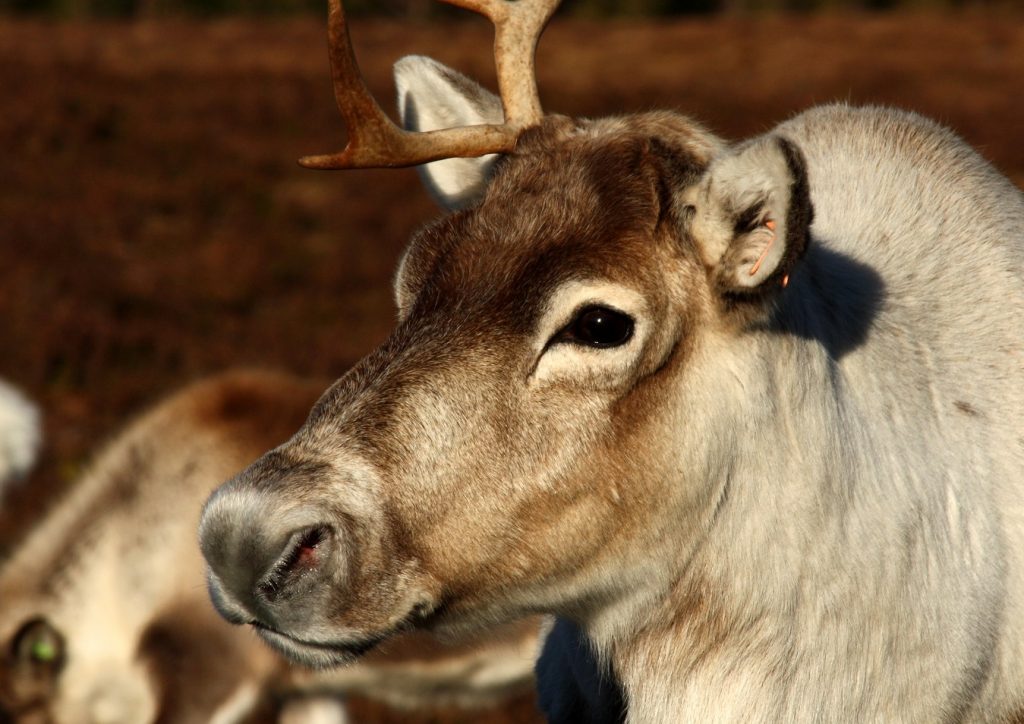
This week’s subject is Okapi. I’ve known Okapi her entire life, and at 15 and a half years old, it’s a long life indeed. Whilst not right up there in my very, very top favourite reindeer, she’s always been in the upper echelons of the reindeer herd, and I reckon most other herders would agree – collectively amongst us, she’s held in extremely high affection.
Okapi was born in 2008, her mum Esme’s third calf. Esme was a lovely reindeer, and was actually the subject of our very first blog, back in 2015! I first met Okapi at a few months old, at which point she was easily distinguishable from the other 2008 calves by the silver hairs on her face, giving her the appearance of wearing war-paint.
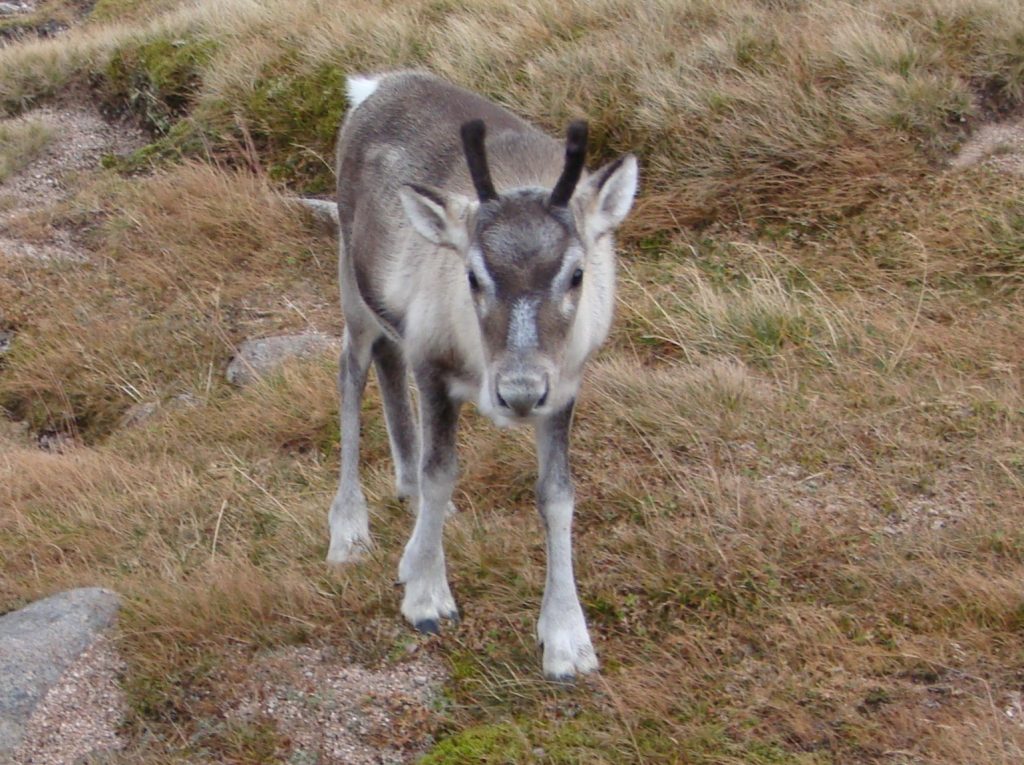
Those silver hairs eventually spread across the rest of Okapi’s body, and although she is still want we would call ‘normal-coloured’, she’s a much greyer colour than many of the other reindeer in the same colour category. Coat colour runs in family lines – Esme was on the silvery side too, as were many other members of the family, most notably Okapi’s big brother Elvis. Elvis became a legendary reindeer in our herd, living to 17 and only passing away a few months ago.
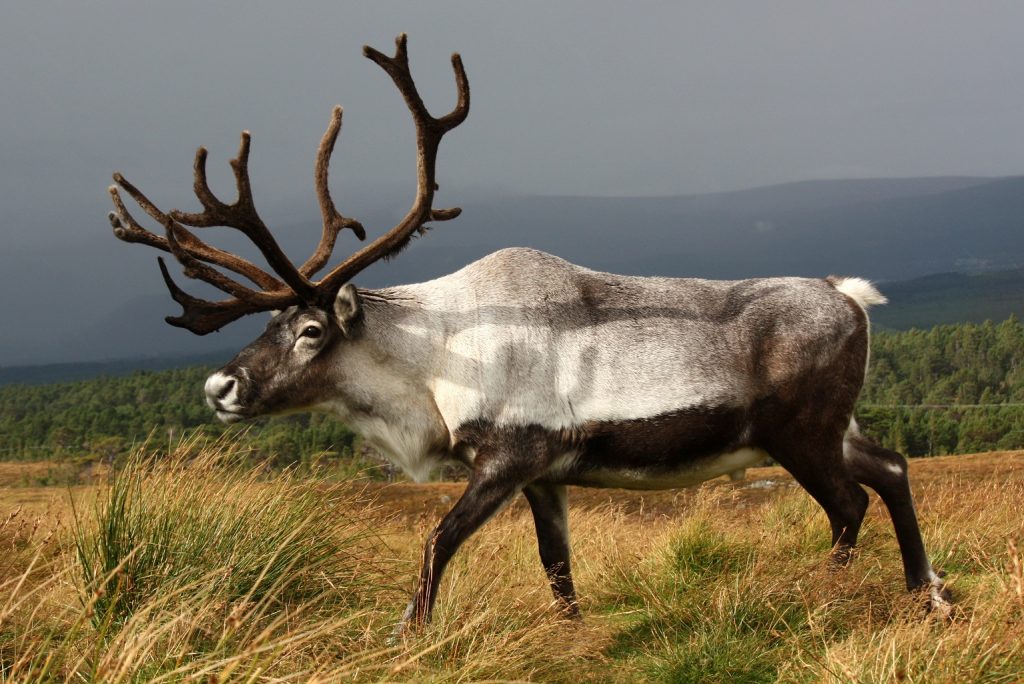
Okapi has always been a ‘leader’ in the herd, a relatively dominant female and generally one of the first to start moving in the right direction when we call the herd from a distance, leading them towards us. Reindeer like this are worth their weight in gold to us as a lot of the winter season is spent bellowing towards specks on a distant hill, and wondering whether they are going to come to us or we are going to have to go to them… It needs a dominant reindeer to sigh, stand up and start moving to get the rest of the herd underway too.
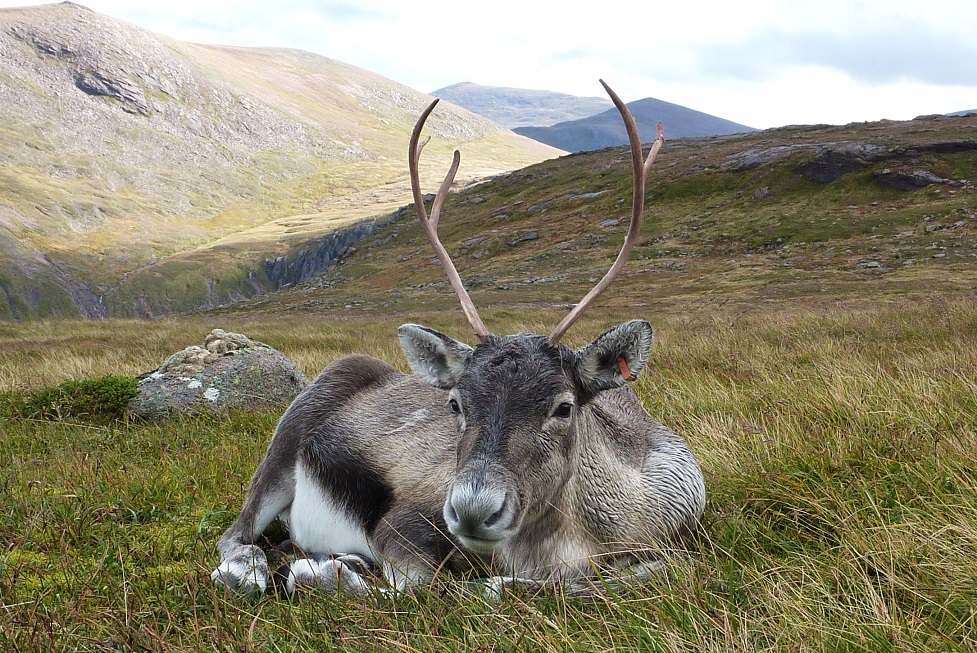
We usually like to breed from our loveliest female reindeer multiple times, but Okapi had a bit of a hitch in this respect. She had two lovely calves, in 2012 and 2013, Murray and Oka. Murray had the best set of antlers that we’ve seen on a calf in our herd, and we were very excited for what he would grow into in the future. Sadly it wasn’t to be, and he passed away at about a year old. Win some and lose some with animals, but this felt like a particularly hard loss.
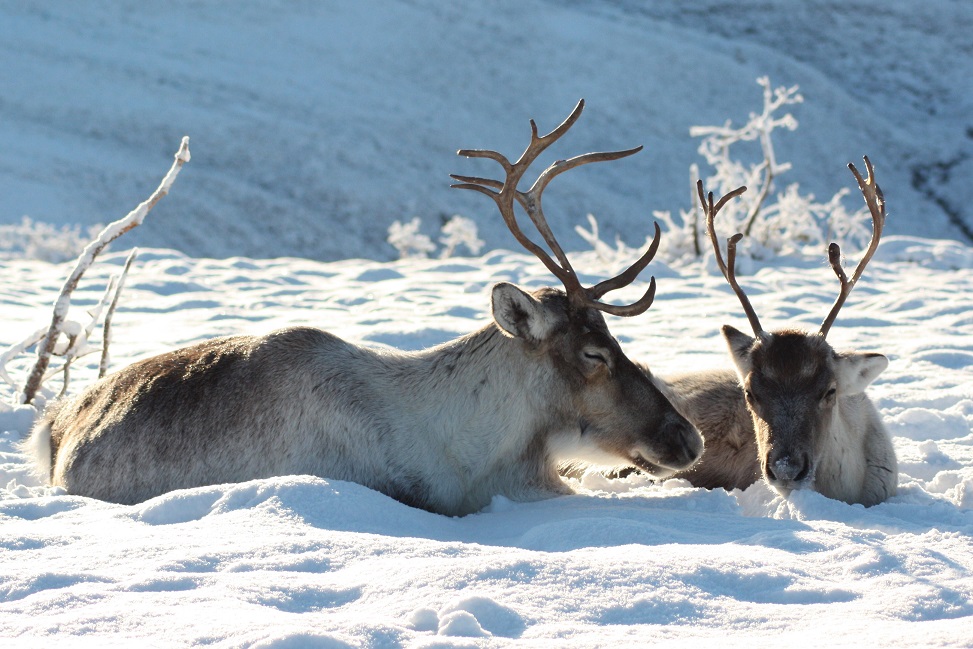
Okapi’s second calf, Oka, was also lovely, but again didn’t survive long term – dying at about 2 years old. A huge shame, as a female she should have gone on to continue Okapi’s genetic line, but hey ho. Again these things happen, but it feels unfair for Okapi to have lost both her calves.
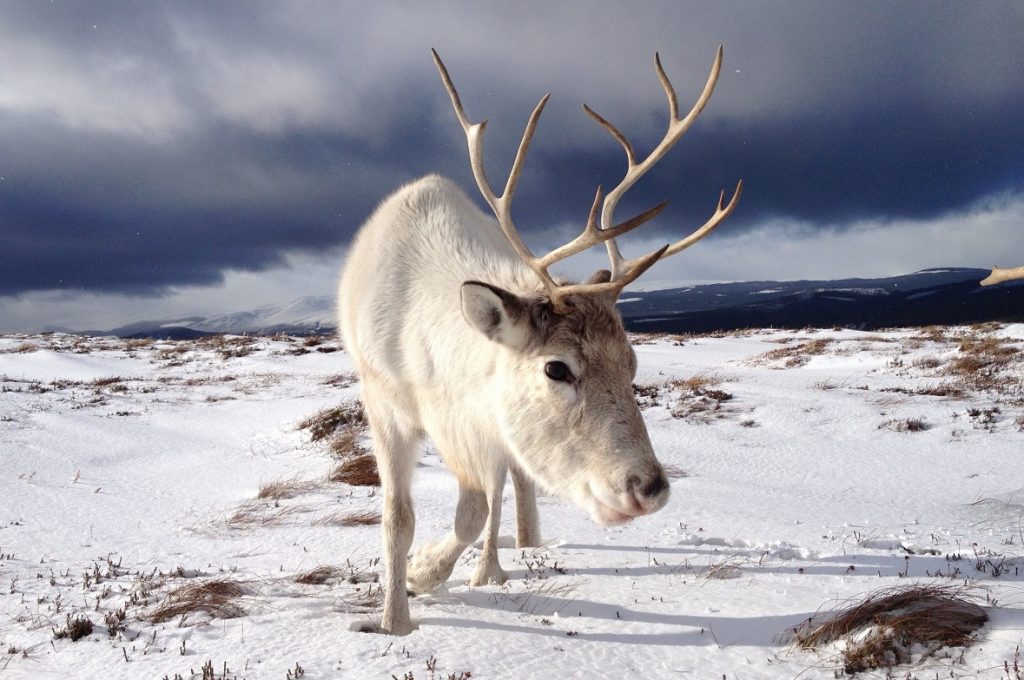
And that was that for Okapi’s motherhood career, as a few months after Oka’s birth she suffered a prolapse. This came completely out of the blue and we never knew what – if anything – triggered it, but the end result was that everything had to be pushed back into place more than once, and eventually permanent stitches were inserted by the vet to keep poor old Okapi’s bits where they should be. This meant no more calves for her – a real shame for a lovely 5 year old female in her prime.
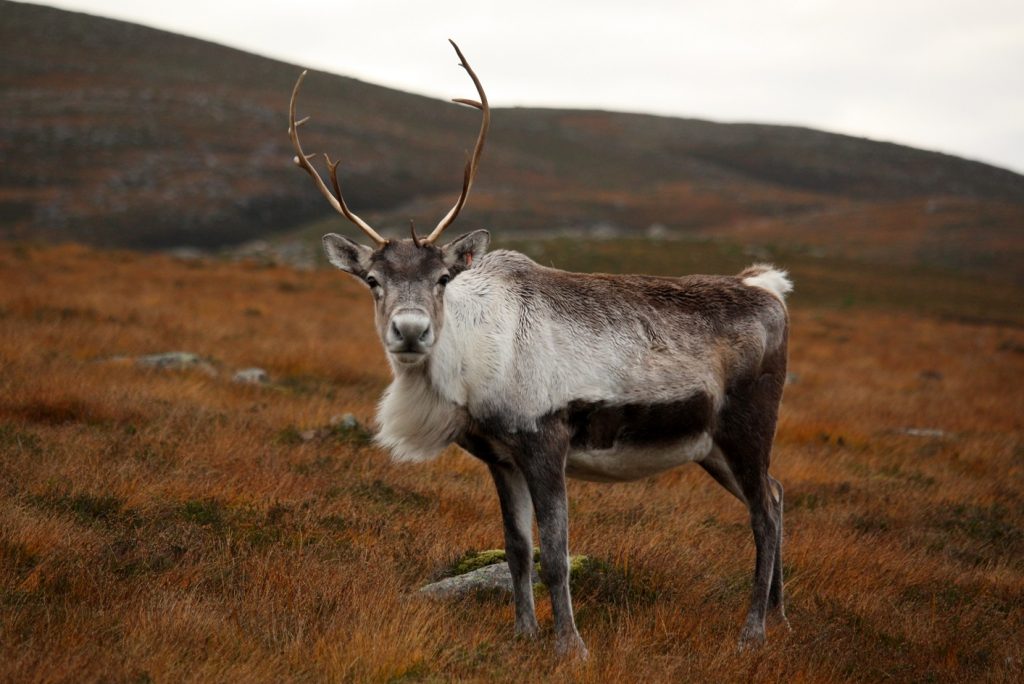
But life as a permanently ‘single lady’ has meant Okapi has since been a lady of leisure, all her energy going into her own body each year, and quite possibly has contributed to her longevity. Almost every year she’s grown pretty big antlers, and it’s only really in the last couple of years she’s started to look ‘old’.
Never having calves at foot means that Okapi also spends a higher ratio of her time free-ranging out on the mountains, as there’s never really a reason for her to spend any length of time in our hill enclosure. She will come in now and then for a few days as all our reindeer need vaccinating a couple of times of year, or sometimes we’ll hold particularly friendly reindeer back in the enclosure so they can be part of a the group for filming, for example. But on average, I’d say Okapi spends 11.5 months a year out living a completely free lifestyle – pretty nice!
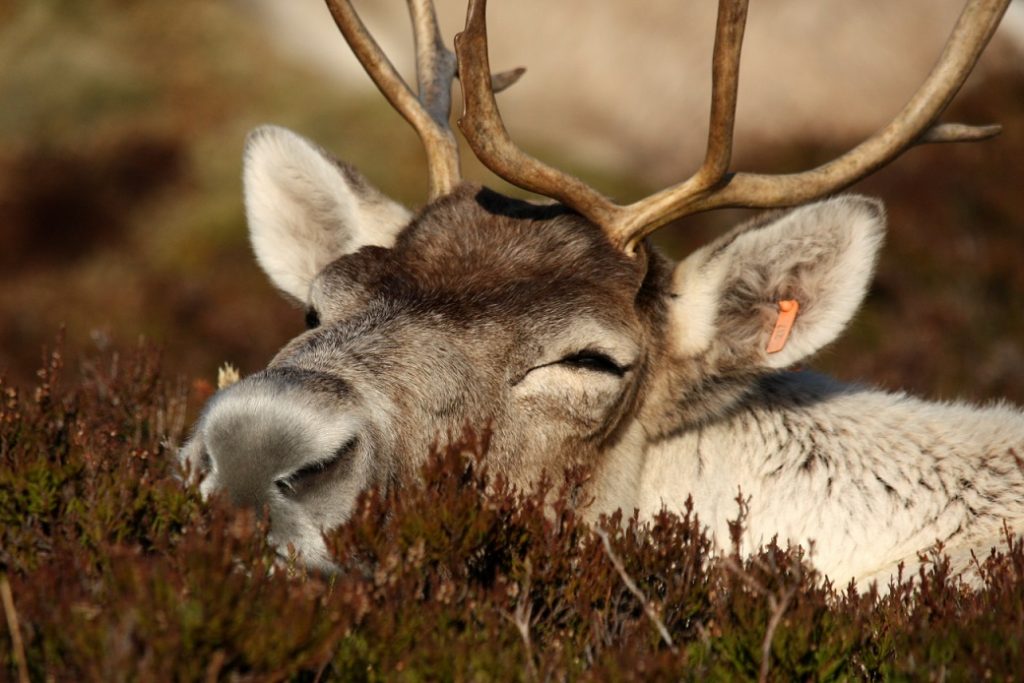
And finally, Okapi had one particular starring role – on the cover of our Naked Reindeer Herders charity calendar in 2023. But I don’t think too many people were looking at the reindeer, if I’m honest…
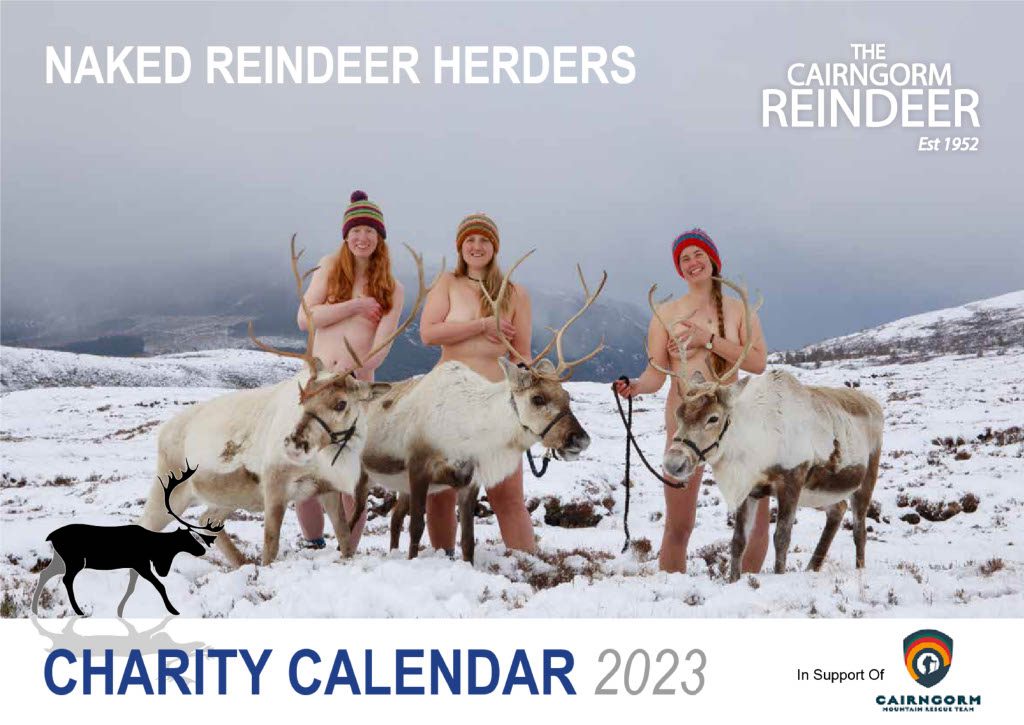
Hen
